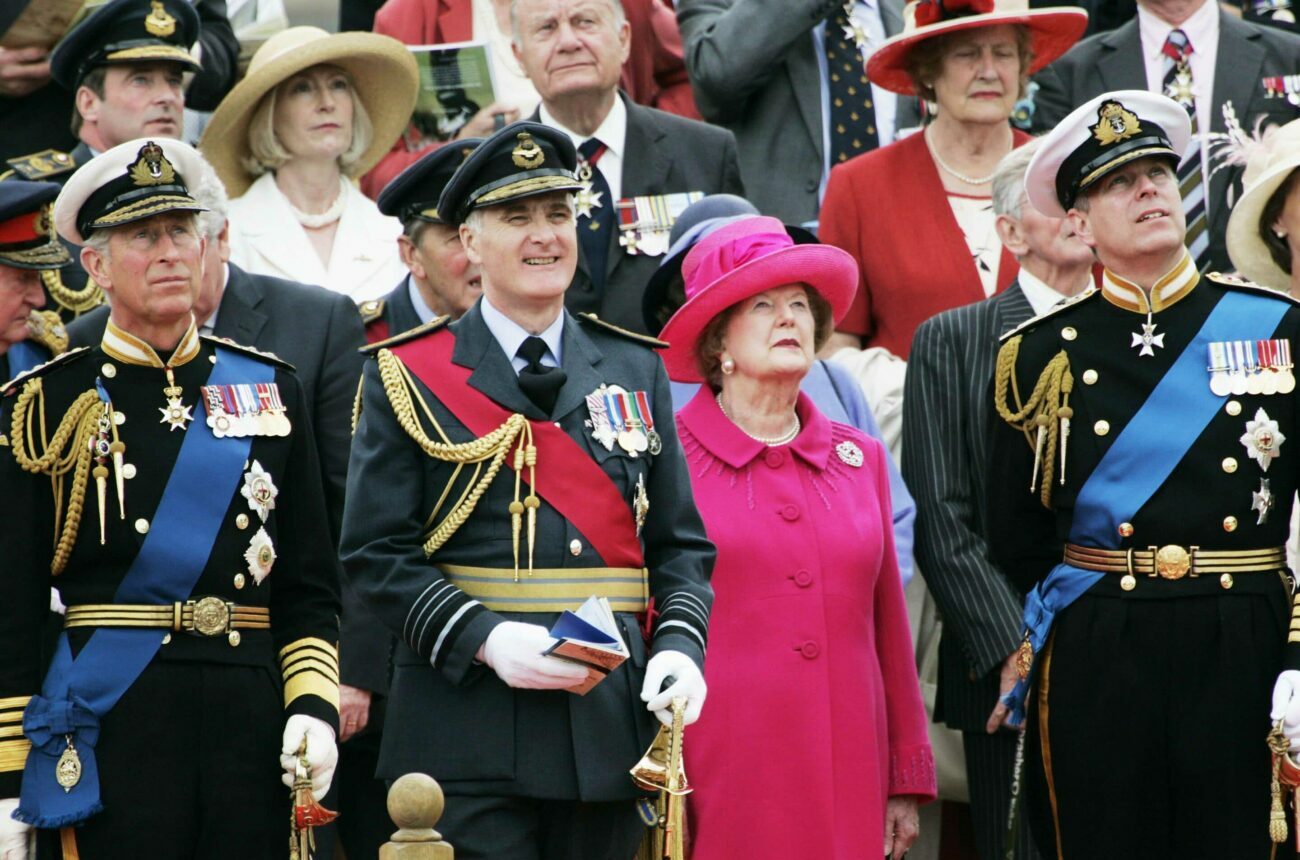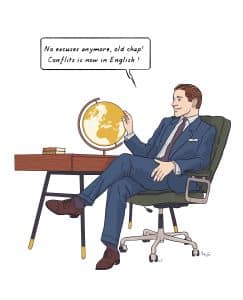“Margaret Thatcher reshaped Britain and divided opinions like few leaders before her. Lord Charles Moore, her authorised biographer, reflects on her political success, her battles against trade unions, her Cold War diplomacy, and the enduring force of “Thatcherism,” a doctrine rooted as much in character as in conviction.”
Lord Charles Moore is a renowned British journalist, historian, and Thatcher’s authorised biographer. He is widely respected for his penetrating analysis of British politics and of conservative thought.
How successful was she Margaret Thatcher a leader of the Conservative Party and as a British Prime Minister?
I think the word “successful” is a very important word with her, because she was. And I think that should be acknowledged whether or not you agree with what she did. And what I mean by successful is two related things:
She always won all the electoral contests which she led. So she won three general elections and therefore was in office for longer than any Prime Minister since the early 19th century.
She had a strong idea of what she wanted to do and she did it.
Then, of course, the question becomes, were they good things to do and that sort of thing. But she undoubtedly was successful electorally and politically. And she, to oversimplify grossly, she helped win the Cold War, which was one of her big aims. She helped bring down inflation, defeat trade union leaders, privatize, open up markets. And those were very much her main aims. And she sorts of developed a doctrine, I suppose you could call it that, called Thatcherism, which became universally recognized. So again, in that sense, she was successful. It’s another matter, of course, whether she was right. But I think that’s an important first thing to say.
Coming back on Thatcherism, how did this doctrine unfold?
I would say that Thatcherism could not be described as a philosophy, but it’s more like a disposition. And it partly reflects her character as well as her views. And it’s in a way more related to beliefs than ideas. And that mixture of things came from her and from her upbringing as a grocer’s daughter in a provincial town, where very unusually for someone from that background, and particularly as a woman from that background, she rose to the highest position.
And so its elements are strong patriotism, a strong belief in the cultural value of the British experience. So she was very unapologetic about British past achievements and wouldn’t have any truck with people who went on, as they do now a lot, about the wickedness of colonialism or something like that. Sorry. And she also wanted to get everything going again.
So the elements would be, strong defence, freer markets, more opportunity for people in general; economic opportunity, and particularly for poorer people.
And Thatcherism also applied to the international scene…
Thatcherism, unlike a lot of British conservatives, was quite evangelical. So she thought, we, and also what she liked Churchill to call the English-speaking people, so we and the United States and others, had something very important that we could bring to the world and would involve the defeat of Soviet communism.
And unlike most of her British predecessors, probably Churchill was the only one like her in this respect, she had a great interest in the future of the peoples under the Soviet yoke, whereas most British prime ministers would see it as a matter of top-level diplomacy and defensive policies and so on, obviously very important.
But she wanted to reach people in Poland or Hungary or whatever, and in the Soviet Union itself, and say, ‘we care about you, you’re oppressed, you can be freer, we’re working for you.’ And she and Reagan did that very successfully.
What made Mrs Thatcher’s relationship with Gorbachev so special?
All previous Soviet leaders in their conversations with British prime ministers were usually very wooden and would almost read out prepared statements and wouldn’t engage. But Gorbachev was clearly a completely different type of person and wanted to have all these discussions. And Mrs. Thatcher, being forthright, would also make it difficult for him in the conversation. So she would say, ‘we know that you are secretly subsidizing the miners strike’, which was true. And he denied it, but actually it was the case and he was embarrassed.
These conversations went on for a very long time, all day. He exceeded the time by two or three hours and it was very decisive in feeling of good. This is good. We’re understanding one another, though we don’t agree and we want to talk more.
She loved men who were well dressed, smart, but in both the American and the English sense, smartly dressed and clever. She liked people with a military bearing. She didn’t like fat men. So, for example, she always said what lovely sparkling eyes Gorbachev had. And she liked Reagan’s sort of courtly old actor manner, well cut suits and things. And she liked Mitterrand because he was a great sort of charmer of women. And she did not like Helmut Kohl, the German leader, because he was a great big fat, slightly pompous person, in her opinion.
Why was she so disruptive for the Conservative party?
I think Mrs Thatcher would never have become Conservative leader, let alone Prime Minister, in good times, because they would have picked a conventional politician, and she was an unconventional politician. She was galvanised really in 1974, in which the Conservatives lost two general elections. And she’d been a minister in the Conservative government, but had acknowledged its failure.
And she felt that what it had really failed to do was to deal with the deep-seated economic problems, which were to do with too much government control, as she saw it, too much inflation, and much too much political power to trade union leaders, which was getting in the way of productivity and the freedom of the worker to rise in the world.
And that was very apparent in those years, not only in Britain, but outside Britain. So, people talked about the British disease and low growth, huge industrial disputes, etc, etc. And she claimed to be able to remedy this by having a government which is strong but more limited. And she knew this had to be a gradual process and she knew she had to persuade a lot of her colleagues because a lot of her senior conservative colleagues were very consensus minded and wanted to sort of make deals with the trade union leaders rather than defeat their politics. And that’s what she set about doing and she slightly more than four years in opposition to work this out before she got there, which was very important because she wouldn’t have been able to do it straight away. And this was highly contested all the way right through her time in office but particularly for the first two and more years.
How did Mrs Thatcher’s defeat the Trade unions?
You mentioned the so-called winter of discontent, which of course is a phrase from Shakespeare. And that happened from 1978 to 1979, that winter, when Labour was still in power and there were many, many strikes. And it shattered Labour’s reputation, which was perhaps its most important reputation, for being able to get on with the trade unions. So, then the question clearly was, well, maybe we shouldn’t be getting on with the trade unions. Maybe we should be defeating their leadership instead of trying to help them get them to help run the country. We should face them down and assert the right of the government to govern rather than the trade unions. And that is what really happened.
And by a series of gradual legislative change and policy change, she took away the privileges of the trade unions, which, for example, made them immune from suits about industrial disruption, civil suits. And she faced down a series of strikes. But this went on and on. So her only final triumph came with the defeat of the miners’ strike in 84, 85, where the miners were on strike for 11 months. And it was very controversial and very difficult for her. But she knew she had to win it because if she didn’t win it, the government would fall. And we would have gone back to 10 years earlier when it was a miners’ strike that brought down the conservative government of the early to mid-70s. She was determined not to repeat that history.
She also had views inspired by Milton Friedman and Friedrich Hayek. How deep was her knowledge of both economists?
Mrs. Thatcher admired and knew both Hayek and Milton Friedman and the Chicago School. And actually Erhard’s policies in Germany as well, which were quite free market. She particularly knew Hayek, whom I knew too, in fact. And the most important organization in Britain to which she used to address was the Institute of Economic Affairs, a free market think tank, not a conservative one, but with quite a lot of conservative supporters. And she wrote and said that she was influenced by The Road to Serfdom, which came out when she was at university at Oxford. I’m not even sure that that is actually true. I think she maybe has a sort of false memory. I think she certainly did read it, but possibly later. Or perhaps she just heard of it then and read it later or something like that. Because she wasn’t so interested in philosophical type questions at the time. But she very much believed in The Road to Serfdom, the principle that he was enunciating about how it is that government control leads to serfdom. And she also agreed about the Constitution of Liberty. And she once slammed it down on the table in her own think tank, the Centre for Policy Studies, and said, this is what we believe.
Read more : The Dead Ends of the Ideological Alliance Between Libertarians and Populists










